The island ferries making life difficult for disabled people
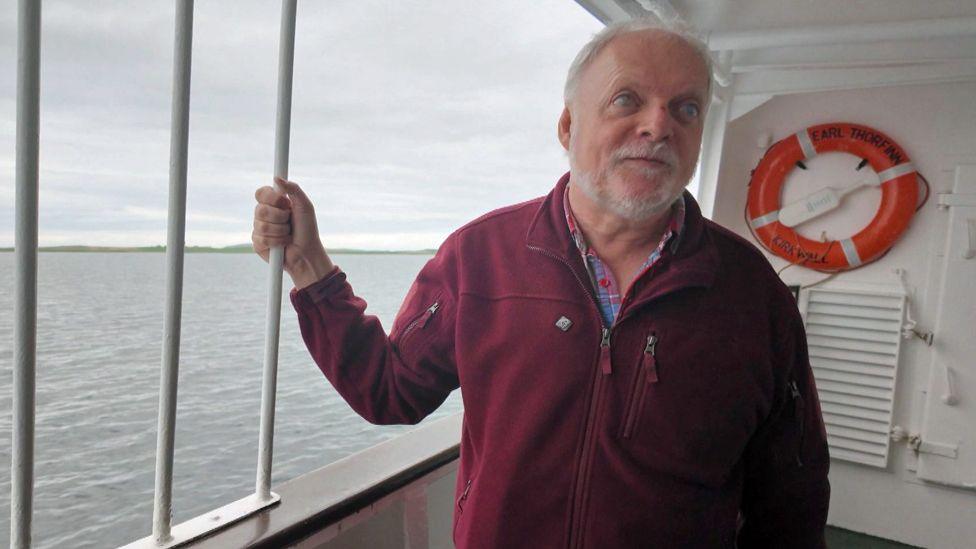
Ian had been contacted by people with disabilities who found it difficult to make journeys between the islands
- Published
For some Orcadians, taking a ferry can be more like tackling an assault course. That was certainly my experience as a blind person travelling between the islands.
I went to Orkney after being contacted by people with disabilities who found it difficult to make journeys between the islands on the ageing fleet.
Last year, the Scottish government agreed with Orkney Islands Council’s request to look at the financial case to start replacing the inter-island ferries, which are vital lifelines for communities.
But there’s a long and expensive journey ahead before new vessels might become a reality, so I wanted to experience firsthand the conditions on board.
My first trip was to Shapinsay - a short 30-minute journey from Orkney's capital, Kirkwall. I've been on many ferries over the years, but none was as challenging and hazardous as this.
First I had to navigate the narrow spaces between the tightly-packed cars on the ferry. This would be difficult enough for anyone - and impossible for a wheelchair user.
Ian navigates tricky access on an Orkney ferry
Trying to get through the door to reach the upper decks was my next hurdle. I had to step over an extremely high door threshold and, being unaware that I should duck simultaneously, banged my head against the top edge of the door.
After this, I faced a very steep staircase which was more like a ladder than a stairway. Climbing up was a challenge, even for someone relatively mobile, and coming down was even more tricky. Fortunately for me, Daniel, my producer, went ahead to break my fall should the worst happen.
While my main focus was on accessibility for people with disabilities, it quickly became apparent that these ferries present challenges for everyone - especially parents with young children and any older people with mobility issues.
The staff were excellent and did their best to help, but were extremely aware of the problems. One employee, who preferred to remain anonymous, told me: "It's embarrassing for us. We know how difficult it is for passengers, and it's equally difficult for us to help them, given the age and condition of the fleet."
On my second day, I went to Westray to meet a couple of disabled residents to hear their experiences.
This ferry trip was longer, but the vessel was no more accessible and I suffered yet another glancing blow as I climbed to the passenger seating area.
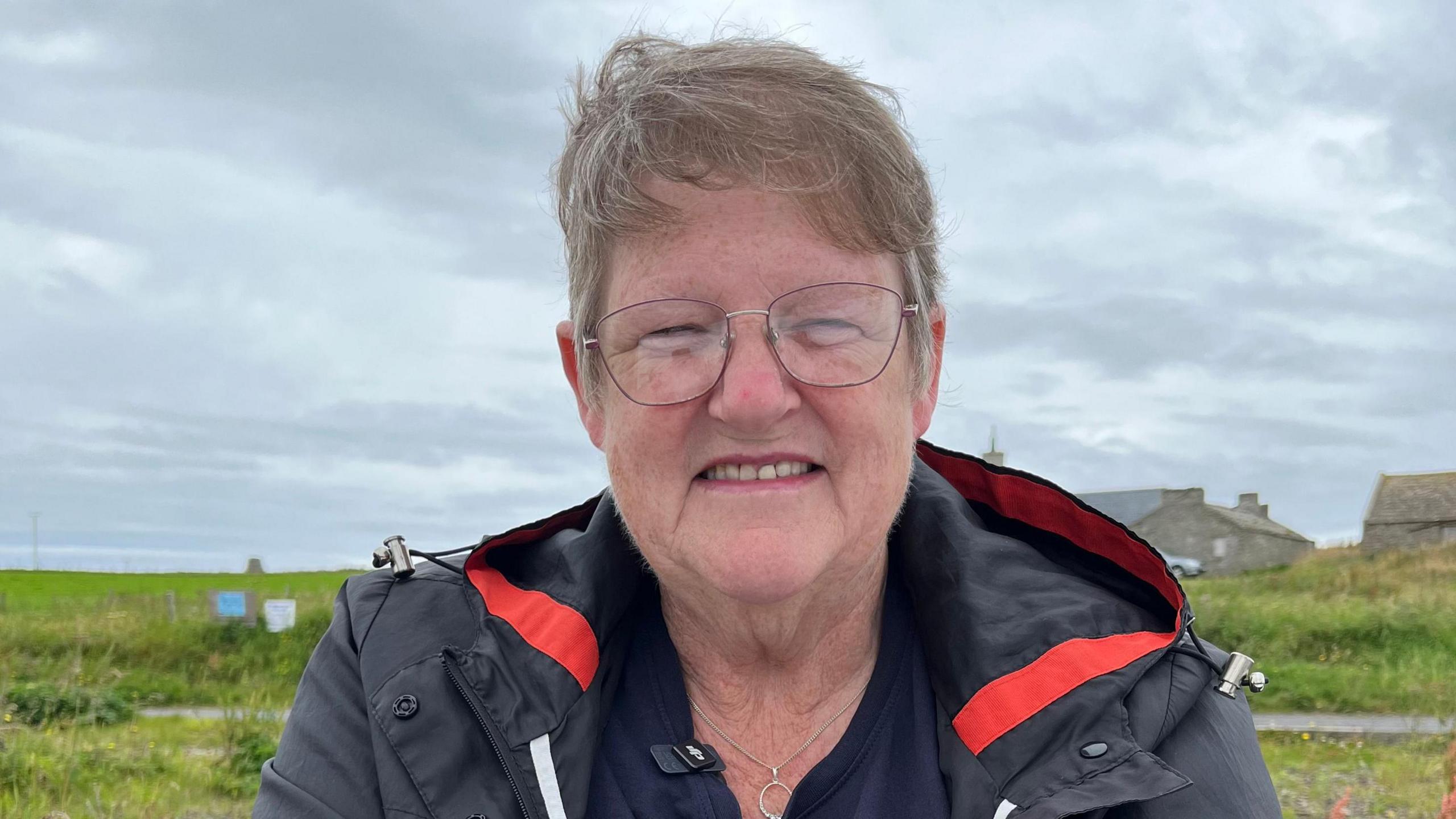
Edith Costie says the boats are old and are not disabled-friendly
On Westray I met Edith Costie, who used to be a care worker on the island before becoming disabled herself.
She said it was extremely tough to get people with disabilities to appointments in Kirkwall using the ferry service.
"Over 30 years ago, these boats arrived, and they were fit for purpose then - but now they're old and not disabled-friendly," she said.
"The crew is great, but the boats themselves are difficult.
“There have been times when the ferries were so packed I couldn't physically get out of the car. I had to honk the horn until someone came to help."
Any ferry built before 1995, like those on the inter-island Orkney service, is not legally obliged to be accessible for disabled passengers.
That all changed under the Disability Discrimination Act 1995 and the subsequent Equality Act 2010. As a result, all ferries built since then have to be accessible.
However, operators say it would not be cost-effective to retrofit ferries built before then to bring them up to standard.
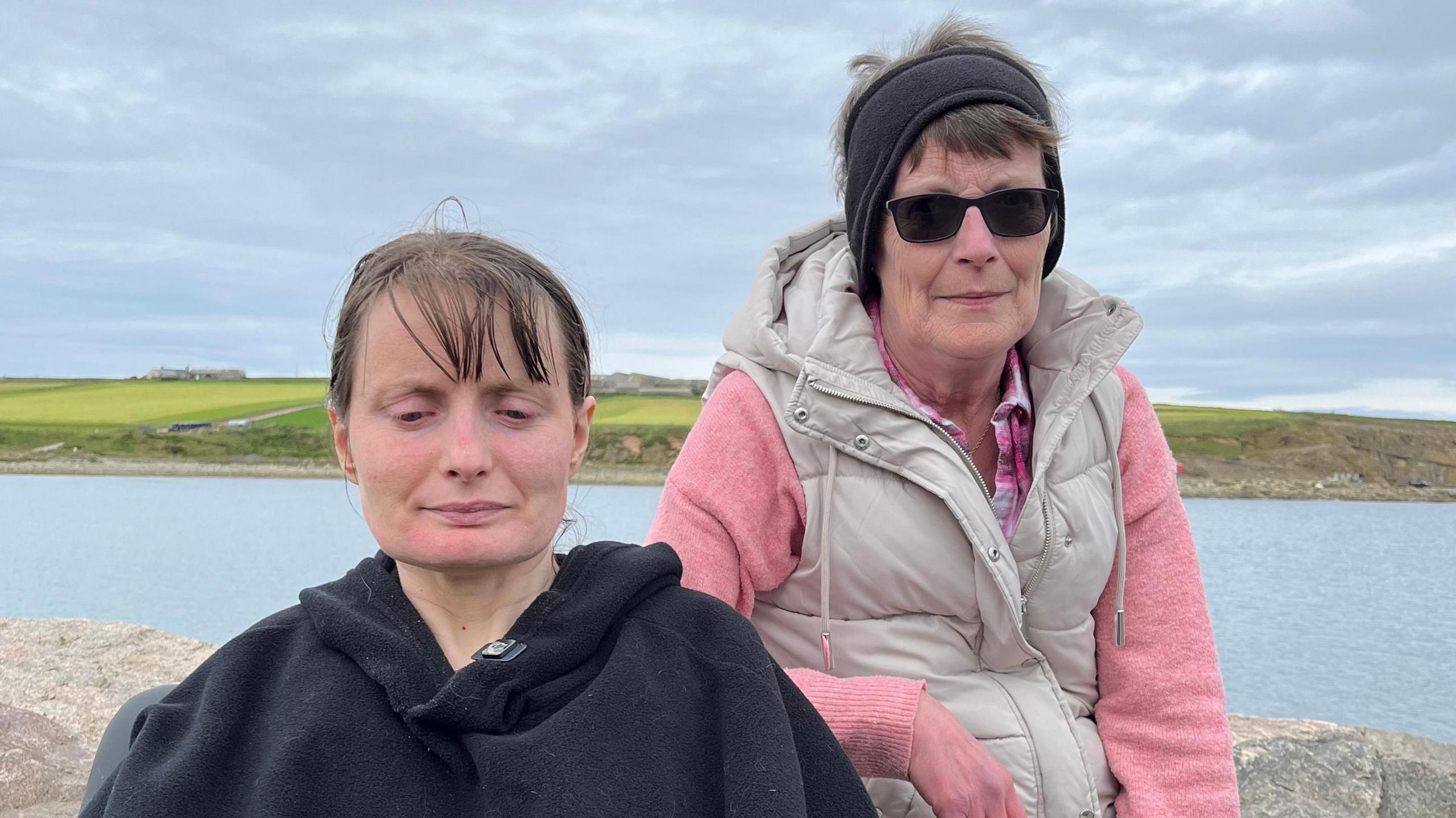
Anne and Myra Kent live on the island of Westray
Myra Kent and her daughter Anne, who has multiple sclerosis, also live on Westray.
Anne is a wheelchair user; she has no movement. She can speak and see, but that's all. It makes ferry trips exceedingly difficult, and you have to plan many days in advance.
They explained: "You have to stay in the vehicle for the hour and a half journey. In summer it's not so bad, but in winter, unless you have hot water bottles and blankets, it's very cold by the time you get to the town."
When I asked Anne if it would be better for someone with her complicated needs to live closer to Kirkwall, both she and Myra said: "No. It would be hard to leave the island. Westray is our home."
Anne needs to go to hospital eight times a year, so they have to plan around the ferry schedules. "It's not the ferry crew's fault," they emphasised, "but it can be hard."
As I headed back to Kirkwall from Westray, I could hardly believe my luck – no minor concussions, scratches, or bruises this time.
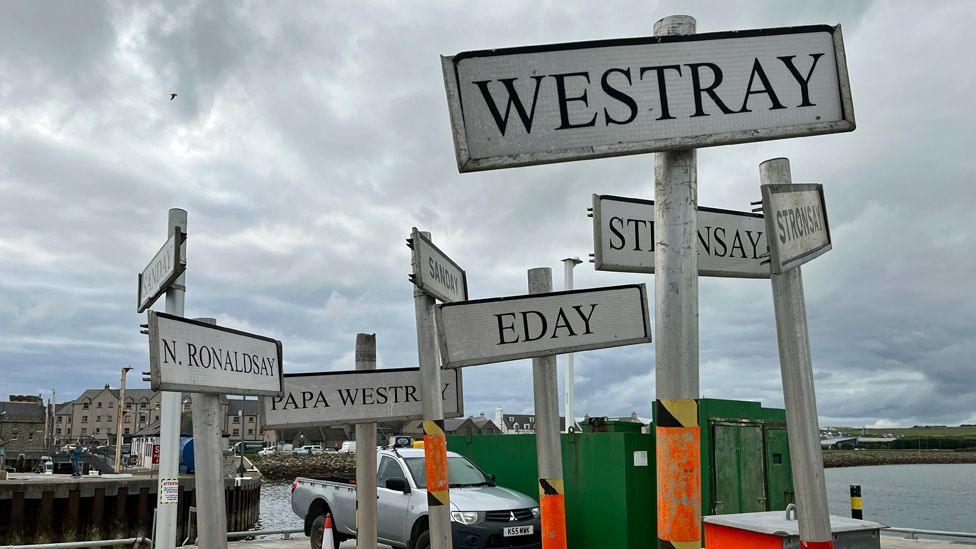
There's no doubt that these ferries are outdated and unsuitable for the 21st Century. The big question remains: where will the money come from to replace them, and how long will it take?
Orkney Islands Council, the smallest local authority in Scotland, would be responsible for funding the replacement of the fleet. Nine ferries, built between 1987 and 1996, need to be replaced.
Doing that, and upgrading the necessary infrastructure, would cost hundreds of millions of pounds - money which the council says it simply cannot afford.
The council’s total annual budget is about £100m, which covers all its services like education, social care and waste management.
Council leader Heather Woodbridge agreed that the situation with the ferries was serious.
"Accessibility is a huge issue for us. The ferries are far below modern standards.
“As the ferries get older, they start breaking down more often, causing disruption to the timetable and everyday life for people living on our islands,” she said.
“These ferries are essential to everyday life. Without them, the island communities would struggle significantly."
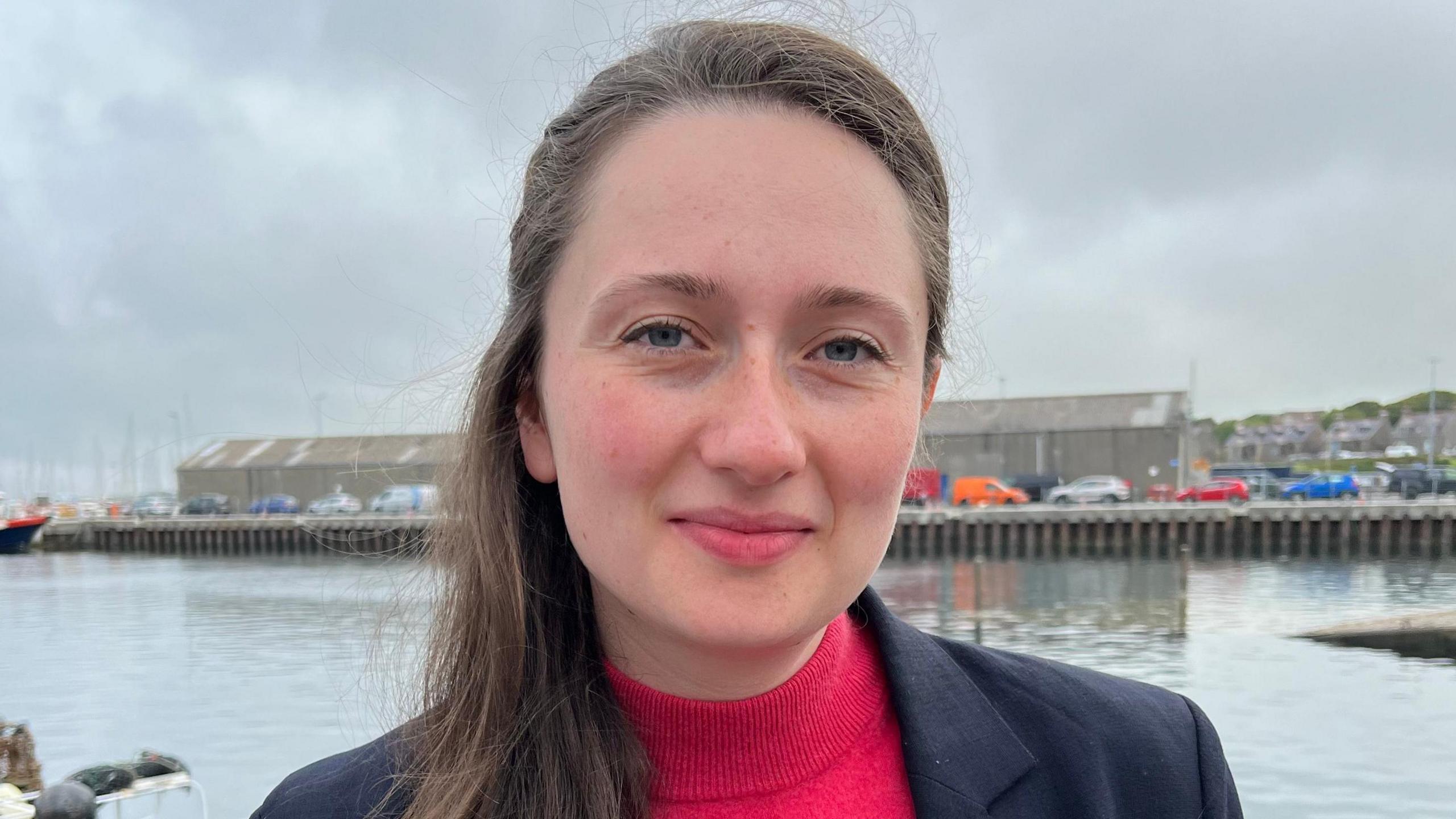
Heather Woodbridge says the ferries have to be replaced
When the current fleet was built, the council received financial help from the European Union - a source of funding which is no longer available.
It now requires assistance from the Scottish government.
Heather Woodbridge said last two years had been positive. A ferries task force, launched by the first minister, has been meeting regularly.
Transport Scotland said it was aware of the growing need for local authorities to replace ferry fleets and infrastructure.
“While responsibility for funding the work to replace these vessels remains wholly with the councils, we will continue to engage with them,” said a spokesperson.
It said it was committed to supporting the council to develop a robust business case for replacing the ferries, and that ministers had agreed in principle to fund further work on this.
However, there is no clear timescale for how long the whole process might take.
Heather Woodbridge said that even if a new ferry was approved tomorrow, and the funding was in place, it would still take years for the construction and the delivery of the first ferry.
But she added: "I think that we are at a point where it's not an option to not get new ferries. It just isn't an option.”
Related topics
- Published17 August 2023
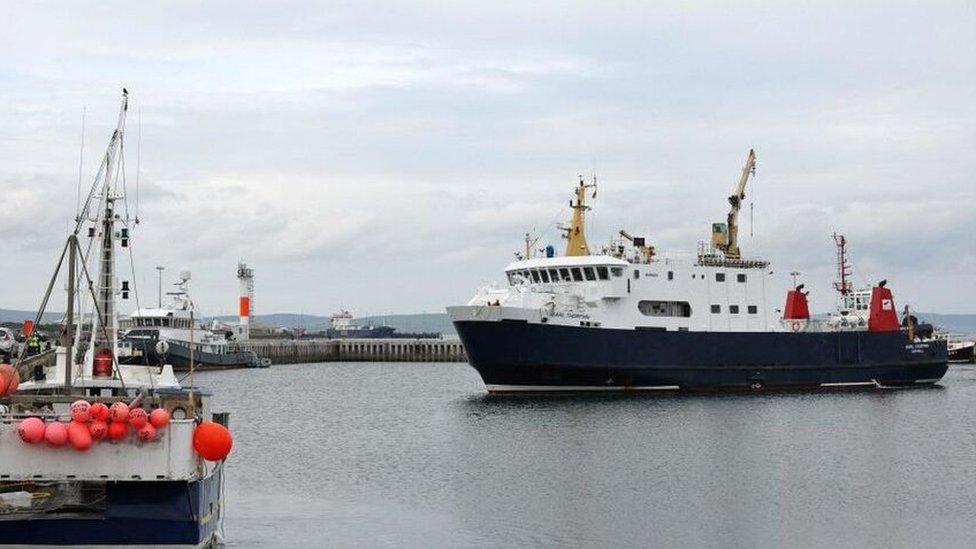
- Published11 September 2023
